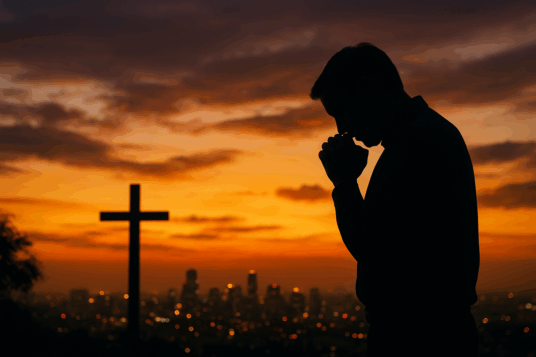Every so often, we will face cultural moments. A national tragedy or even a global crisis captures the attention of our people. And suddenly, the church looks to its pastors.
What do we do in those moments?
If we say nothing, our silence is heard as indifference. If we speak too quickly, we risk being careless or reactionary. If we speak too cautiously, we may seem detached from the pain our people are carrying. Yet doing nothing is not an option, because cultural moments shape souls.
Why It Matters for Congregants
When events strike—whether a war breaking out, an act of violence, or a Supreme Court decision—our people are already hearing voices from the news, from social media, from neighbors, and from coworkers. Those voices shape how they interpret reality.
If pastors and Christian leaders are also trusted voices, then our silence means forfeiting the opportunity to shape hearts and minds in a biblical way. If we don’t guide them, other voices will. And too often, those voices are unbiblical, uncharitable, or manipulative.
This means our role is not just to express care but to instruct. We are shepherds, yes, but also teachers. We must help our congregants discern what faithful grief looks like, and also what unfaithful or unbiblical reactions look like. Without this, wrong views spread quickly through our congregations, shared online and in conversations, sowing confusion and division.
So when pastors step up promptly, with both compassion and clarity, we not only comfort, but we correct, we shape, and we strengthen the flock.
Not Every Event, But Some Events
Of course, not every headline requires a pastoral response. Our people don’t need us to react to every story trending on social media. But some events rise to the level where silence becomes harmful.
- When planes struck the Twin Towers on September 11, 2001, churches filled overnight. People weren’t asking for political analysis—they were desperate for comfort, perspective, and prayer.
- When George Floyd’s death sparked protests and unrest in 2020, congregations needed pastoral guidance on how to lament without falling into rage.
- When Supreme Court rulings reshape cultural norms around life, marriage, or religious freedom, Christians look to their shepherds to help them discern what it means to stand faithful in a changing society.
These are moments when pastors must find a voice and speak.
What Our People Need
- Acknowledgment of Reality – To ignore grief, violence, or injustice leaves congregants feeling unseen. A simple acknowledgment, “We see what is happening, and we are praying”, can go a long way.
- Interpretation Through Scripture – Our task is not to repeat headlines but to show how God’s Word frames the moment. Ephesians 6 reminds us that our struggle is not against flesh and blood. Psalm 46 reminds us that God is a refuge in times of trouble.
- Instruction in Right and Wrong Responses – Love without guidance is incomplete. Our people need to hear not only how to grieve rightly but also warnings against unbiblical grief—responses of hatred, vengeance, or despair. Silence on this point leaves room for worldly ideologies to disciple the church instead.
- A Steadying Presence – When pastors model patience, wisdom, and compassion, they give their people permission to breathe, to wait on the Lord, and to resist fear or frenzy.
A Better Way Than Silence or Overreaction
As we’ve learned, it is possible to overreact—to post, preach, or rant before facts are clear, or to mirror the outrage of the world. And it is equally possible to underreact—to say nothing, or to wait until the moment has passed. The better way is a measured, timely, biblical response:
- Grief first, socio-political analysis second. We weep with those who weep.
- Presence before position. We acknowledge the pain before taking a stance.
- Prudence with timeliness. We don’t rush, but we don’t delay until the moment is gone.
- Instruction with compassion. We not only comfort but also correct, teaching the flock how to grieve and respond as disciples of Christ.
The Shepherd’s Task
Our role is not to shield the church from discomfort or to offer empty empathy. It is to help God’s people process cultural moments faithfully: naming evil, clinging to hope, resisting despair, and pointing again to Christ who is Lord over history.
Pastors will not always agree on the exact words to use. Congregants will not always receive them the same way. But if we remain silent, the loudest cultural voices will disciple our people instead.
So let us be present, let us be prayerful, and let us be courageous. For in every cultural moment, the world is watching not only what the church believes, but how the church responds.
